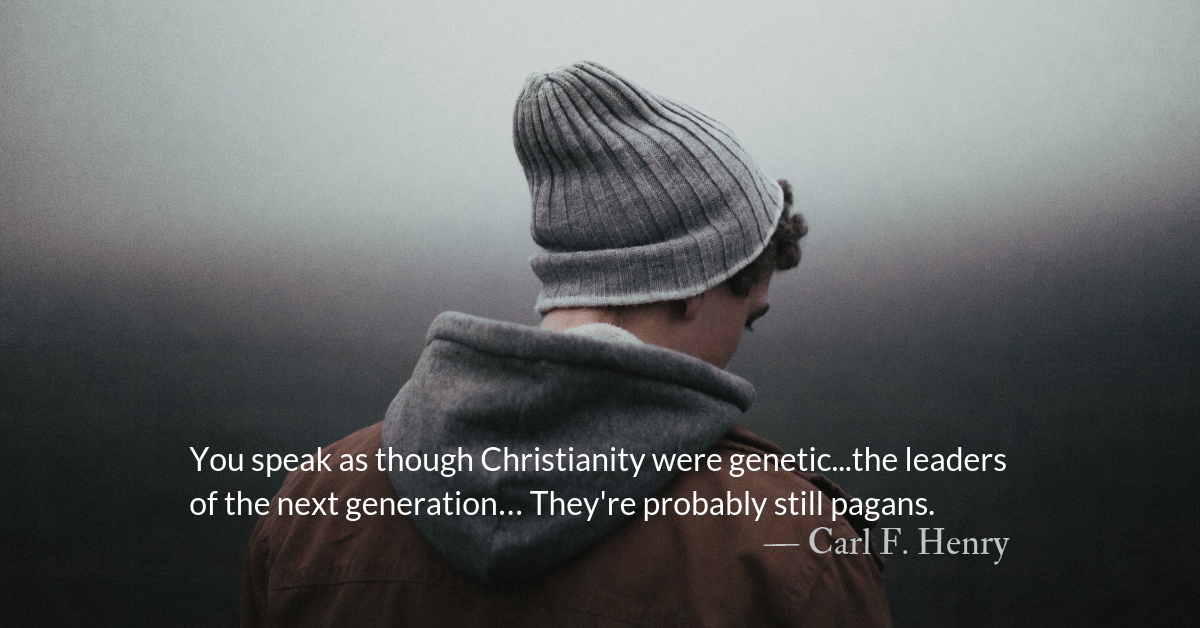Selected by reader, Jon Polk, Hong Kong
We have sadly become so conditioned to take sides on every issue, attempting to discredit those who disagree with us, that we easily forget that God loves the “other” just as much as us. Paul identifies his audience as “former sinners” because he remembers his own past and the grace of God that saved him. May our faith never make us so smug and self-righteous that we forget how God rescued us out of the pit of mud and mire (Psalm 40). As Christians, we must remember that every human bears the image of God and that no one is beyond the reach of God’s saving grace.
Originally published, September 4, 2019, based on readings from 1 Samuel 28 & 1 Corinthians 9.
Scripture Focus: 1 Corinthians 9.1
Am I not free? Am I not an apostle? Have I not seen Jesus our Lord? Are you not the result of my work in the Lord?
Reflection: Complaint to Commission—Readers’ Choice
By John Tillman
In his book, Onward: Engaging the Culture without Losing the Gospel, Russell Moore relates a rebuke he received and took to heart. Moore and several others were discussing a topic that often arises among pastors and even among laypersons—the pitiful state of the church. Moore asked rhetorically if there was any hope for the future of Christian witness.
Many believers may have despondent questions regarding this topic that bring our spirits low.
Isn’t it terrible how leaders with no scruples are staining the church’s reputation?
Isn’t it terrible how church attendance is such a low priority for so-called “believers?”
Isn’t it terrible how many young leaders are apostatizing and publically leaving the faith?
Complaining can turn into unspiritual grumbling but it can also initiate lament in our lives and communities. To spur our thinking in the right direction, we sometimes need a wise answer to our complaining questions.
Theologian, Carl F. Henry was listening to Dr. Moore’s conversation and responded to Moore’s question:
“Why, you speak as though Christianity were genetic. Of course, there is hope for the next generation of the church. But the leaders of the next generation might not be coming from the current Christian subculture. They’re probably still pagans. Who knew that Saul of Tarsus was to be the great apostle to the Gentiles? Who knew that God would raise up a C.S. Lewis, once an agnostic professor, or a Charles Colson, once Richard Nixon’s hatchet man, to lead the twentieth-century church? They were unbelievers who, once saved by the grace of God, were mighty warriors of the faith.”
It would be difficult to find a New Testament city more akin to our culture than Corinth. Our culture is equally pagan, sinful, and damaging. Paul’s long and passionate letters to the Corinthians show his own struggles, complaints, and problems with the church and its witness there. Paul also shows us how to go beyond complaint to the cure our culture needs—the gospel.
These believers, who were formerly sinners of every kind, were dear to Paul’s heart. As we work to transform our culture with the gospel, the sinners around us must be dear to our hearts as well.
We must be their apostle. The work of making disciples is not given only to the clergy. It is the calling and command to every believer. The disciples to lead the next generation of the church may be those we have yet to reach.
Divine Hours Prayer: The Greeting
I put my trust in your mercy; my heart is joyful because of your saving help. — Psalm 13.5
– Divine Hours prayers from The Divine Hours: Prayers for Summertime by Phyllis Tickle
Today’s Readings
Jeremiah 50 (Listen – 8:42)
Psalm 28-29 (Listen – 2:41)
Read more about Supporting our Work
The Park Forum strives to provide short, smart, engaging, biblical content to people across the world for free with no ads. Gifts to The Park Forum support this mission.
Read more about Blessed is the One :: A Guided Prayer
We are not blameless. We are not righteous.
When we honestly and humbly look in our hearts we find wickedness there.







